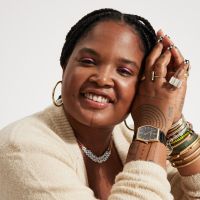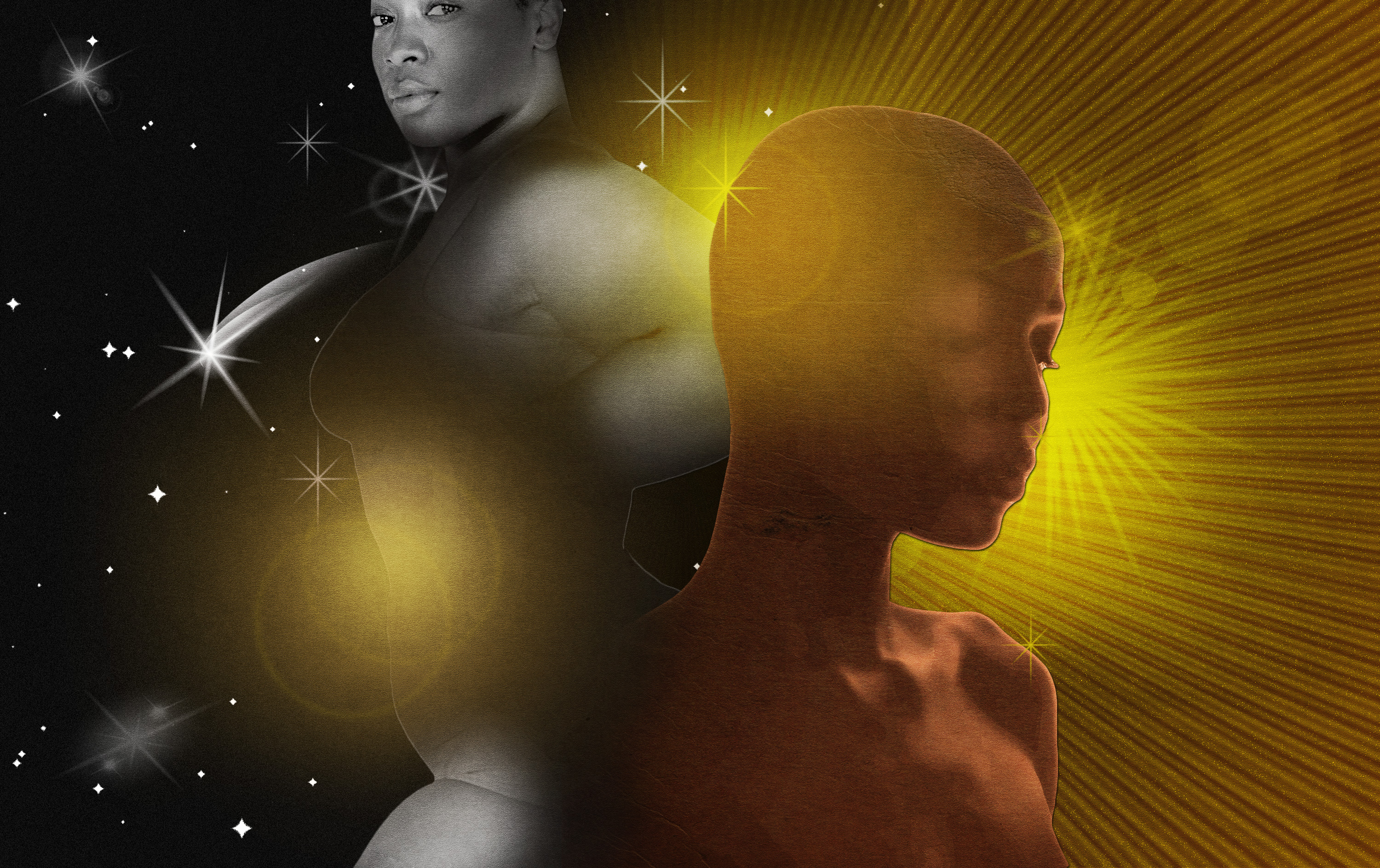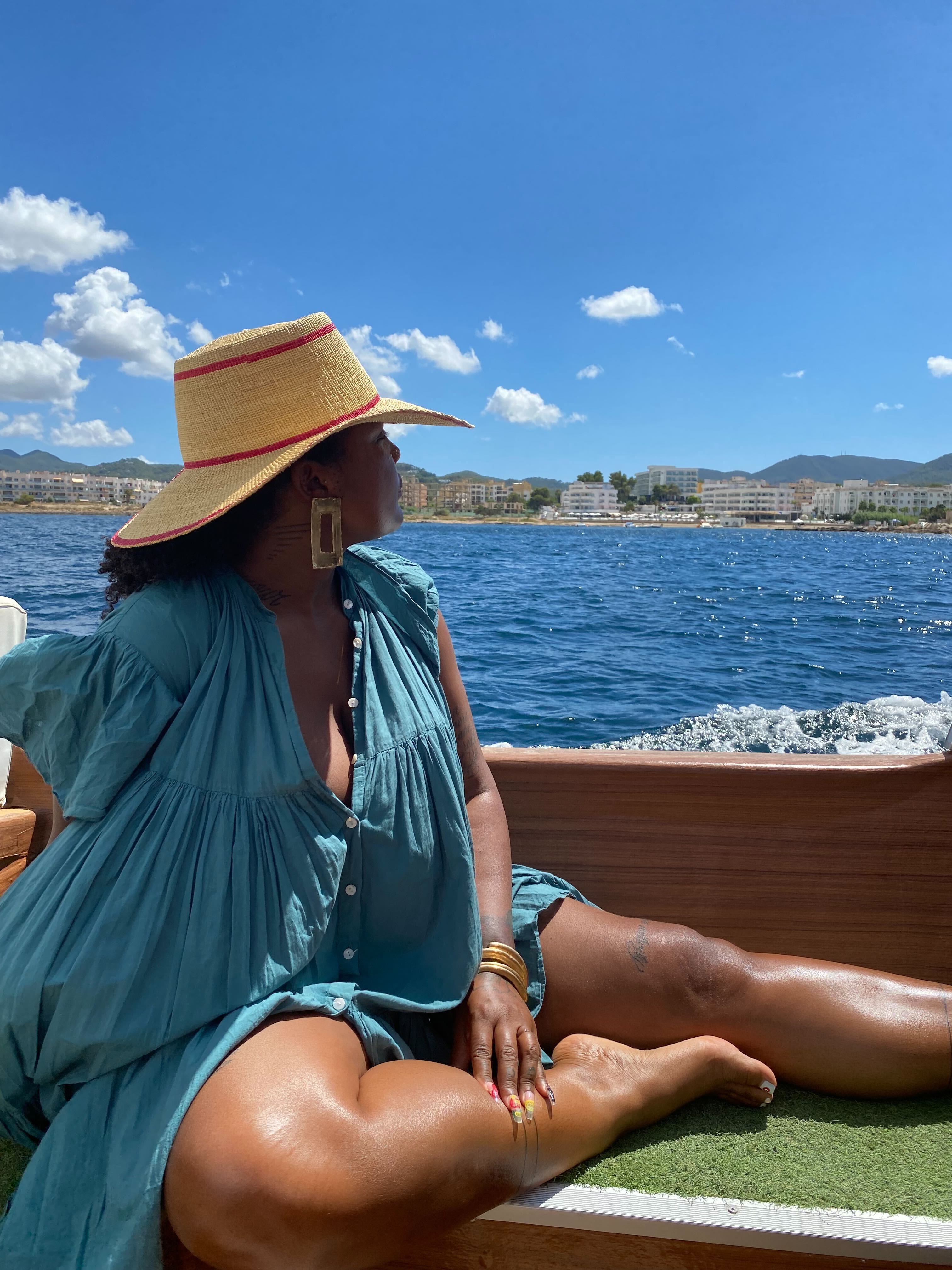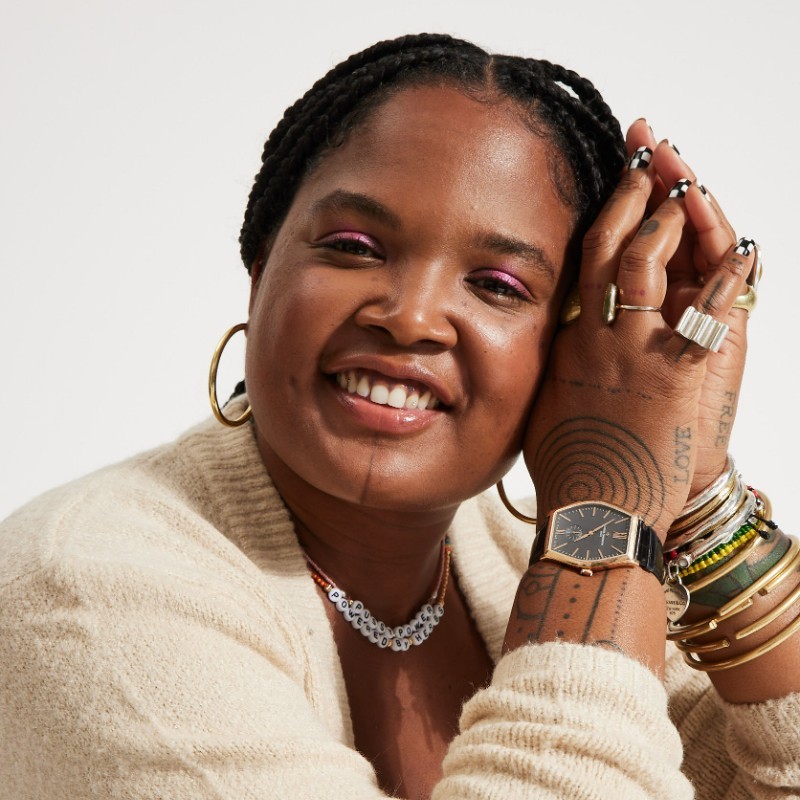How My Journey of Self-Discovery Unlocked Advocacy for Black Women
My relationship with wellness is my own. And given America’s history of medical racism against bodies like mine, it is ever more precious.


Select the newsletters you’d like to receive. Then, add your email to sign up.
You are now subscribed
Your newsletter sign-up was successful
Want to add more newsletters?

Delivered daily
Marie Claire Daily
Get exclusive access to fashion and beauty trends, hot-off-the-press celebrity news, and more.

Sent weekly on Saturday
Marie Claire Self Checkout
Exclusive access to expert shopping and styling advice from Nikki Ogunnaike, Marie Claire's editor-in-chief.

Once a week
Maire Claire Face Forward
Insider tips and recommendations for skin, hair, makeup, nails and more from Hannah Baxter, Marie Claire's beauty director.

Once a week
Livingetc
Your shortcut to the now and the next in contemporary home decoration, from designing a fashion-forward kitchen to decoding color schemes, and the latest interiors trends.

Delivered Daily
Homes & Gardens
The ultimate interior design resource from the world's leading experts - discover inspiring decorating ideas, color scheming know-how, garden inspiration and shopping expertise.
Can you imagine a world where saying the word vagina doesn’t immediately make people uncomfortable? A world where the word vagina is said at the same rate as hand or foot or elbow. Unfortunately, we live in a world where having a vagina can often be a source of shame or embarrassment when it leaks or bleeds. It can be deemed too big, too small, too hairy, not hairy enough. Unless it’s pushing out a baby, vaginas are rarely celebrated.
Even worse: After a year-long bout of continued bacterial vaginosis, it dawned on me how little is known about the common experiences humans with vaginas face. I dealt with medical misinformation and endless appointments that only led to more questions, not less pain. When your health is in question, your days and life disrupted, it becomes clear how necessary your wellbeing is.
This is true for all women. But especially so for Black women. We have been—and often continue to be—treated poorly by the medical community.
I've learned that wellness is like a fingerprint, it’s yours and yours alone.
If you look at the study of reproductive health, it has a troubled history in America. In 1876, James Marion Sims was elected President of the American Medical Association. A venerated surgeon and researcher of his time, Dr. Sims is widely referred to as the “father of modern gynecology” for his pioneering work in the field of women’s health—work which relied on the use of enslaved women whom he would experiment on without anesthesia or consent. It is substantiated that much of the work, studies, and surgeries conducted by Dr. Sims are still used as reference points throughout medical texts and education. Information published in 1876 that has dictated the shame, the disconnect, the exploitation of vaginas and women’s health are what Black humans encounter when they walk into a doctor’s office or hospital.
As the scholar Deirdre Cooper Owens notes in her book, Medical Bondage: Race, Gender, and the Origins of American Gynecology, these and other enslaved women and girls who served as Dr. Sims’s medical aides and subjects are the true “mothers of gynecology” for their sacrifices made to the field.
I’ll say some of their names here, because it’s important for us to remember them: Lavinia Boudurant, 13; Ann McRee, 16; Julia McDuffie, 20; and other women identified only as Delia, Anarcha, Betsy, and Lucy.
As if the surgeries and endless testing weren’t enough, when you contemplate the space of birth control and fertility, one can uncover even scarier truths. The vagina is often leveraged as a purely sexual vessel without understanding the underlying ramifications of controlling the natural cycles of the human body. The first large-scale human trials of the birth control pill were conducted on populations of Puerto Rican women throughout the 1950s. Forced contraceptive trials underscore another example of how minority bodies have been manipulated and devalued in an attempt to unlock greater access to freedom and information for the majority.
Get exclusive access to fashion and beauty trends, hot-off-the-press celebrity news, and more.

I want to change that. It is, in part, why I started The Honey Pot, a feminine care company that promotes the health of women. There is power in deciding the products you want to use to care for your vagina.
The journey to reclaim and redefine my relationship with my vagina led to the rest of my body. I began to look at my whole health. Which is why it's so important that we normalize these conversations—and the very word vagina itself.
For me, that meant searching for doctors who understood my needs. It meant taking care of my health as it relates to my cholesterol, weigh, and blood sugar (conditions that disproportionally affect the Black community). I learned that wellness is like a fingerprint, it’s yours and yours alone. Wellness is science—tests, data, information, and spirituality. It’s learning what your needs are and how you’re reducing stress and soothing your nervous system.
Putting myself at the center of my own existence was far from natural. It was uncomfortable and scary. The fear was rooted in the notion that I would be abandoning, excluding or alienating my community. Boy was I wrong. I've learned that I can take care of myself and others. I've learned that ultimately, that relationship is mine and mine alone, not to be defined by anyone else.
The journey shouldn't end with me. I want you take your own path and love your body. Reclamation is movement—the action of unlearning, learning, and charting the path forward. Make the appointment. Eat your vegetables. Drink water. Draw the bath. Call your aunts, moms, and grandmothers, and listen. Say the word vagina proudly, it all helps.

In 2014, Beatrice Dixon launched The Honey Pot Company, a plant-derived vaginal wellness line created with a goal of providing humans with vaginas healthy alternatives to traditional feminine care products that are free of unwanted chemicals, carcinogens, and sulfates.